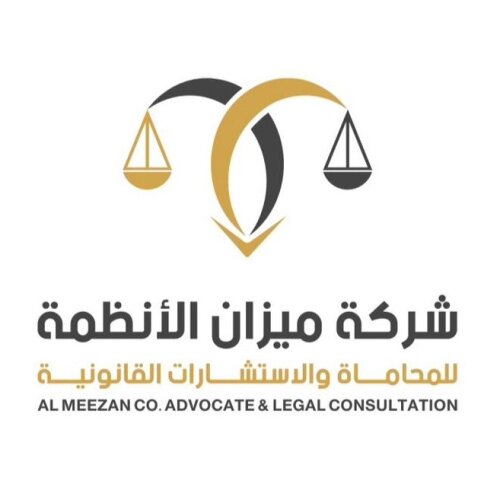
Best Trusts Lawyers in Saudi Arabia
Share your needs with us, get contacted by law firms.
Free. Takes 2 min.
Or refine your search by selecting a city:
List of the best lawyers in Saudi Arabia

About Trusts Law in Saudi Arabia
The concept of Trusts is relatively new to Saudi Arabia, primarily due to the country's adherence to Islamic law, which traditionally doesn't recognize the typical Western concept of trusts. However, Saudi Arabia has made strides in incorporating aspects of common law practices to facilitate business and personal estate planning needs. Trusts in Saudi Arabia can now serve various purposes, including estate planning, asset protection, and ensuring the business continuity handled in Shariah-compliant ways.
Why You May Need a Lawyer
Engaging a lawyer specializing in Trusts is crucial for several reasons. Firstly, the unique intersection of Shariah and commercial laws in Saudi Arabia requires a deep understanding of both legal systems. Legal professionals can help tailor trust structures to comply with local regulations. Secondly, scenarios such as estate planning, asset protection, business succession planning, or dealing with family assets often necessitate the creation and management of trust structures. A lawyer can also assist in resolving disputes or ambiguities related to trust management or beneficiary rights.
Local Laws Overview
The Saudi legal framework for Trusts integrates both Shariah principles and commercial regulations. The key aspects include:
- Trusts must comply with Islamic law, which influences their structure and purpose.
- The Saudi Arabian Capital Market Authority (CMA) oversees and regulates various types of investment funds, which may involve trust-like structures.
- Trusts may be required to ensure equitable distribution of assets in compliance with Islamic inheritance laws.
- Documents creating a trust should be meticulously drafted to reflect the settlor's intentions while adhering to legal stipulations.
Frequently Asked Questions
What is the primary purpose of a trust in Saudi Arabia?
Trusts in Saudi Arabia are utilized primarily for estate planning and asset protection, designed to ensure Shariah-compliance.
How are trusts established in Saudi Arabia?
Trusts are typically established through legal instruments that define its terms, beneficiaries, and compliance with Islamic laws.
Can trusts in Saudi Arabia include non-Muslim beneficiaries?
Trusts may include non-Muslim beneficiaries, but the trust structure must ensure that it respects Saudi legal principles.
Are there tax implications for creating a trust in Saudi Arabia?
Saudi Arabia has no personal income tax regime, but other tax implications and governmental fees might apply depending on the trust's specifics.
Is it necessary to register a trust in Saudi Arabia?
Depending on the type and function of the trust, registration may be required, primarily to ensure compliance with governing laws.
How can disputes within a trust be resolved?
Trust-related disputes are typically resolved through arbitration or local courts, emphasizing adherence to Islamic and commercial law principles.
What roles do trustees typically perform?
Trustees in Saudi Arabia manage trust assets in adherence to the terms set out in the trust deed and must comply with Shariah law.
Can trusts own real property in Saudi Arabia?
Yes, trusts can own real property, but such ownership must comply with laws related to foreign investment or ownership if applicable.
What are the reporting requirements for trusts?
Trusts may need to maintain records and report income or distributions according to Saudi accounting practices and regulations.
Are there any specific legal challenges for trusts in Saudi Arabia?
Yes, challenges primarily revolve around ensuring the trust complies with both Shariah law and the evolving commercial legal framework.
Additional Resources
For those seeking more information or assistance, consider contacting the following:
- The Saudi Arabian Capital Market Authority (CMA) for regulatory guidance.
- Local law firms with a specialization in Trusts and Estates.
- The Saudi Ministry of Justice for legal advising services related to family and private matters.
Next Steps
If you require legal assistance regarding trusts in Saudi Arabia, it's advisable to consult with a legal professional specializing in trusts and estates. Schedule a consultation to discuss your specific circumstances and ensure that your interests are protected within the complex framework of Saudi law. Additionally, verify the credentials and familiarity of the law firm or consultant with both English common law principles and Shariah law to ensure you receive comprehensive guidance.
Lawzana helps you find the best lawyers and law firms in Saudi Arabia through a curated and pre-screened list of qualified legal professionals. Our platform offers rankings and detailed profiles of attorneys and law firms, allowing you to compare based on practice areas, including Trusts, experience, and client feedback.
Each profile includes a description of the firm's areas of practice, client reviews, team members and partners, year of establishment, spoken languages, office locations, contact information, social media presence, and any published articles or resources. Most firms on our platform speak English and are experienced in both local and international legal matters.
Get a quote from top-rated law firms in Saudi Arabia — quickly, securely, and without unnecessary hassle.
Disclaimer:
The information provided on this page is for general informational purposes only and does not constitute legal advice. While we strive to ensure the accuracy and relevance of the content, legal information may change over time, and interpretations of the law can vary. You should always consult with a qualified legal professional for advice specific to your situation.
We disclaim all liability for actions taken or not taken based on the content of this page. If you believe any information is incorrect or outdated, please contact us, and we will review and update it where appropriate.
Browse trusts law firms by city in Saudi Arabia
Refine your search by selecting a city.













